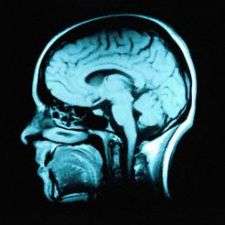Study confirms creative energy in Parkinson's sufferers is greater than in healthy individuals

Prof. Rivka Inzelberg of Tel Aviv University's Sackler Faculty of Medicine and the Sagol Neuroscience Center at Sheba Medical Center, Tel Hashomer, documented the exceptional creativity of Parkinson's patients two years ago in a review for Behavioral Neuroscience. Since then, she has conducted the first empirical study to verify a link between Parkinson's disease and artistic inclination.
That empirical study, now published in the Annals of Neurology, definitively demonstrates that Parkinson's patients are more creative than their healthy peers, and that those patients taking higher doses of medication are more artistic than their less-medicated counterparts.
"It began with my observation that Parkinson's patients have a special interest in art and have creative hobbies incompatible with their physical limitations," said Prof. Inzelberg. "In my last paper, I reviewed case studies from around the world and found them to be consistent. In my present research, we conducted the first comprehensive study to measure the creative thinking of Parkinson's patients. This was not a simple task, because how does one measure, or quantify, creativity? We had to think creatively ourselves."
Measuring artistic creativity
Prof. Inzelberg and a team of researchers from TAU, the Sheba Medical Center, and Bar-Ilan University conducted a full battery of tests on 27 Parkinson's patients treated with anti-Parkinson's drugs and 27 age- and education-matched healthy controls. Some of the tests were well-known and others newly adapted for the purpose of the study. The tests included the Verbal Fluency exam, in which a person is asked to mention as many different words beginning with a certain letter and in a certain category (fruit, for example) as possible.
The participants were then asked to undergo a more challenging Remote Association Test, in which they had to name a fourth word (following three given words) within a fixed context. The groups also took the Tel Aviv University Creativity Test, which tested their interpretation of abstract images and assessed the imagination inherent in answers to questions like "What can you do with sandals?" The final exam was a version of the Test for a Novel Metaphor, adapted specifically for the study.
Throughout the testing, Parkinson's patients offered more original answers and more thoughtful interpretations than their healthy counterparts.
In order to rule out the possibility that the creative process evident in the hobbies of patients was linked to obsessive compulsions like gambling and hoarding, to which many Parkinson's patients fall prey, participants were also asked to fill out an extensive questionnaire. An analysis indicated no correlation between compulsive behavior and elevated creativity.
Express yourself
The conclusions from the second round of testing—in which the Parkinson's participants were split into higher- and lower-medicated groups—also demonstrated a clear link between medication and creativity. Parkinson's patients suffer from a lack of dopamine, which is associated with tremors and poor coordination. As such, they are usually treated with either synthetic precursors of dopamine or dopamine receptor agonists
According to Prof. Inzelberg, the results are hardly surprising, because dopamine and artistry have long been connected. "We know that Van Gogh had psychotic spells, in which high levels of dopamine are secreted in the brain, and he was able to paint masterpieces during these spells – so we know there is a strong relationship between creativity and dopamine," said Prof. Inzelberg.
Prof. Inzelberg hopes her research will be instrumental in spreading awareness. Parkinson's patients often feel isolated by their physical limitations, so artistic work could provide a welcome outlet of expression. "After my first paper, I helped organize exhibits of patients' paintings in Herzliya and Raanana and received feedback about similar exhibits in Canada and France," said Prof. Inzelberg. "These exhibits were useful in raising funds for Parkinson's research, providing occupational therapy for patients – and, most importantly, offering an opportunity for patients to fully express themselves."
Prof. Inzelberg is currently researching additional forms of creativity in Parkinson's patients.

















